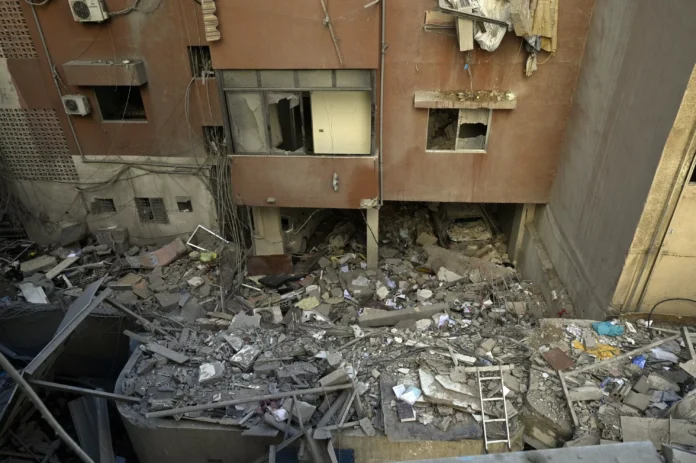The world was once again shaken by violence as Israel launched a devastating airstrike in Beirut, Lebanon, killing several civilians and targeting the headquarters of the Lebanese militant group Hezbollah. But amidst the destruction and chaos, the body of Hezbollah’s military commander Fuad Shukr was discovered buried under the rubble. This tragic event has left the entire nation in mourning and has raised questions about the motives behind this attack.
According to Reuters, two reliable security sources have confirmed that Shukr’s body was found amongst the debris of the bombed building. Shukr, who was known as one of the top military commanders of Hezbollah, had been living in Beirut for years and was a prominent figure in the group’s operations. This targeted attack has not only robbed his loved ones of a dedicated leader but has also created a void in the militant organization.
The news of Shukr’s death has sent shockwaves across the country, with supporters of Hezbollah taking to the streets in protest against the Israeli aggression. Many have gathered to pay their respects to the fallen commander, who was hailed as a hero by the group’s followers. Shukr’s death has once again highlighted the ongoing conflict between Israel and Hezbollah, which has been ongoing for decades.
The Israeli airstrike has been condemned by many international leaders, who have called for an immediate end to the violence and for both parties to engage in peaceful dialogue. The United Nations has also expressed its concern over the escalating situation and has urged all parties to exercise restraint. This attack not only goes against international laws but also undermines the already fragile peace in the region.
In the wake of this tragedy, Hezbollah has vowed to retaliate and seek revenge for the death of their commander. This statement has raised concerns about the possibility of further violence and retaliation, which could only exacerbate the already tense situation. As the leader of Hezbollah, Hassan Nasrallah has promised to avenge Shukr’s death, it is crucial for all parties involved to exercise restraint and refrain from engaging in any further acts of violence.
Shukr’s death has not only affected the Hezbollah organization but has also left a deep impact on the people of Lebanon. He was a well-respected leader, admired by many for his bravery, dedication, and steadfastness. Shukr was not just a military commander, but also a charismatic figure, who worked tirelessly to protect the people of Lebanon from external threats. His death has left a void that will be difficult to fill.
The attack on Hezbollah’s headquarters has also raised questions about the true motives behind this aggression. Was it merely an act of retaliation or a deliberate attempt to cripple the group’s operations? The destruction caused by the airstrike has also raised concerns about civilian casualties and the need to protect innocent lives in times of conflict. The death of Shukr serves as a grim reminder of the human cost of war and the need for efforts to promote peace and stability.
Despite the tragic loss of their leader, Hezbollah remains determined to continue their fight against Israel and has vowed to defend their land and people at all costs. The group’s resilience and determination serve as an inspiration to many, and they have gained support and admiration from not only the people of Lebanon but from other countries in the region as well.
In conclusion, the death of Fuad Shukr has left a scar in the hearts of all who knew him. His unwavering dedication and sacrifice will forever be remembered by the people of Lebanon and beyond. The need for peace and stability in the region has never been more crucial, and it is time for all parties to unite and work towards finding a peaceful resolution to this ongoing conflict. Let us honor Shukr’s memory by promoting peace and condemning all acts of aggression and violence. Only then, can we hope for a better tomorrow for the people of Lebanon and the entire region.


